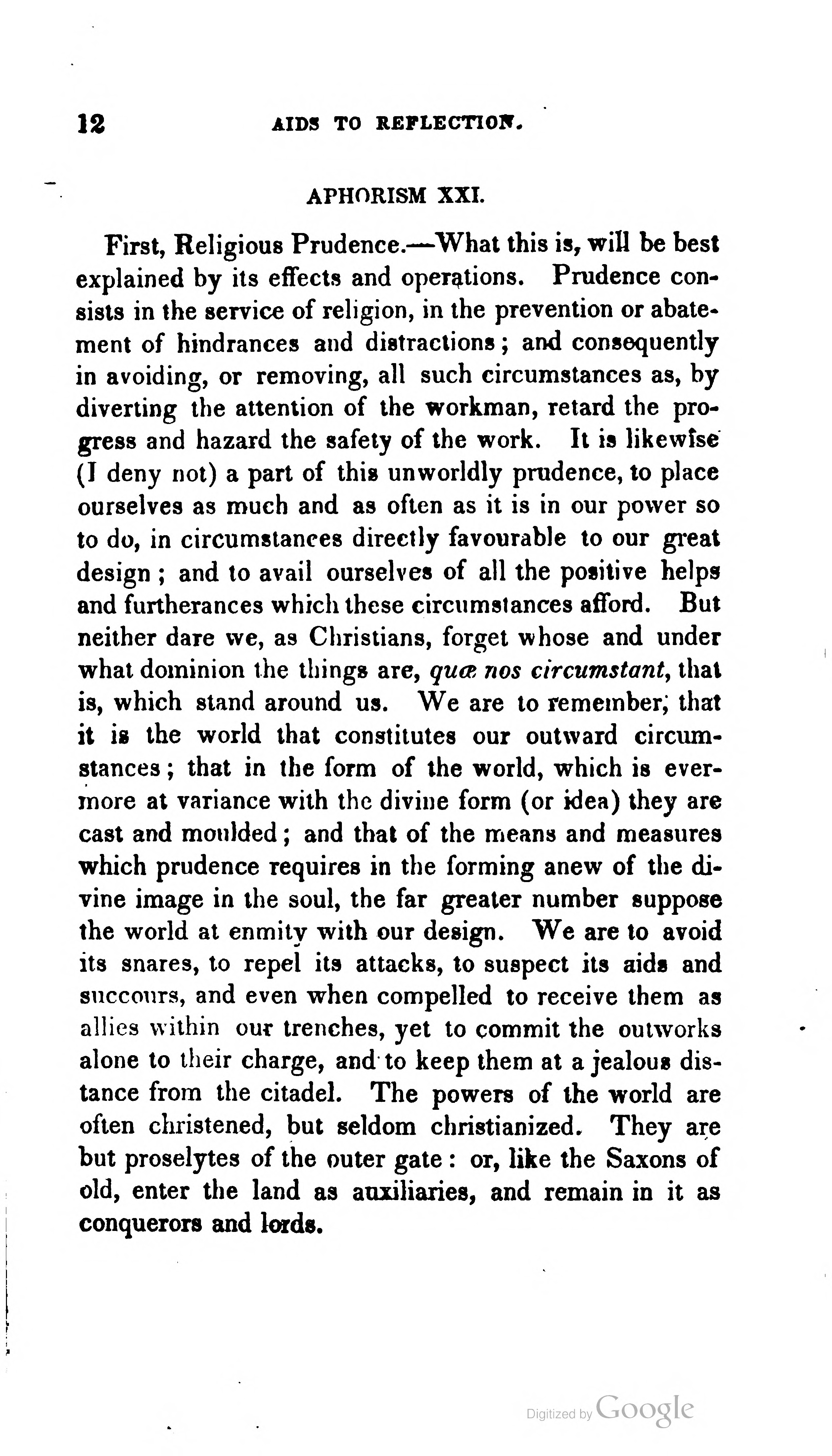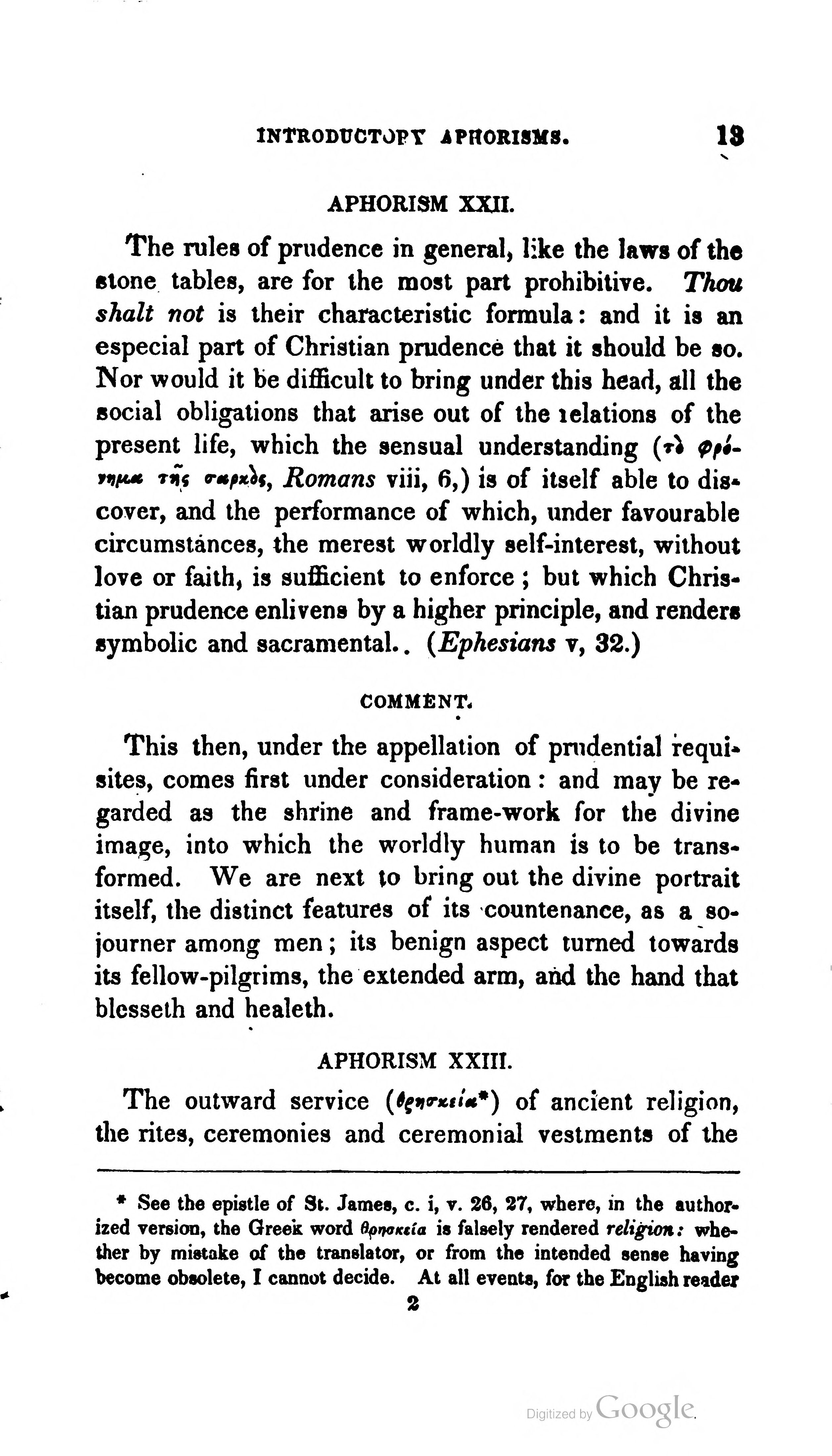Contents
| « Prev | APHORISM XXIII. | Next » |
APHORISM XXIII.
The outward service

*See the epistle of St. James, c. i, v. 26, 27, where, in the authorized version, the Greek word

is falsely rendered religion: whether by mistake of the translator, or from the intended sense having become obsolete, I cannot decide. At all events, for the English reader 14 old law, had morality for their substance. They were the letter, of which morality was the spirit; the enigma, of which morality was the meaning. But morality itself is the service and ceremonial (cultus exterior,

of our times it has the effect of an erroneous translation. It not only obscures the connexion of the passage, and weakens the peculiar force and sublimity of the thought, rendering it comparatively flat and trivial, almost indeed tautological, but has occasioned this particular verse to be perverted into a support of a very dangerous error; and the whole epistle to be considered as a set-off against the epistles and declarations of St. Paul, instead of (what in fact it is) a masterly comment and confirmation of the same. I need not inform the religious reader, that James, c. i, v. 27, is the favourite text and most boasted authority of those divines who represent the Redeemer of the world as little more than a moral reformer, and the Christian faith as a code of ethics, differing from the moral system of Moses and the prophets by an additional motive; or rather, by the additional strength and clearness which the historical fact of the resurrection has given to the same motive.
**The Greek word

unites in itself the two senses of began to exist and was made to exist. It exemplifies the force of the middle voice, in distinction from the verb reflex. In answer to a note on John i, 2, in the Unitarian version of the New Testament, I think it worth noticing, that the same word is used in the very same sense by Aristophanes in that famous parody on the cosmogonies of the mythic poets, or the creation of the finite, as delivered, or supposed to be delivered, in the Cabiric or Samqthracian mysteries, in the Comedy of the Birds.
--------

†James, c. i, v. 25.


signifies the incurvation or bending of the body in the act of looking down into; as, for instance, in the endeavour to see the reflected image of a star in the water at the bottom of a well. A more happy or forcible word could not have been chosen to express the nature and ultimate object of reflexion, and to enforce the necessity of it, in order to discover the living fountain and spring-head of the evidence of the Christian faith in the believer himself, and at the same time
15| « Prev | APHORISM XXIII. | Next » |